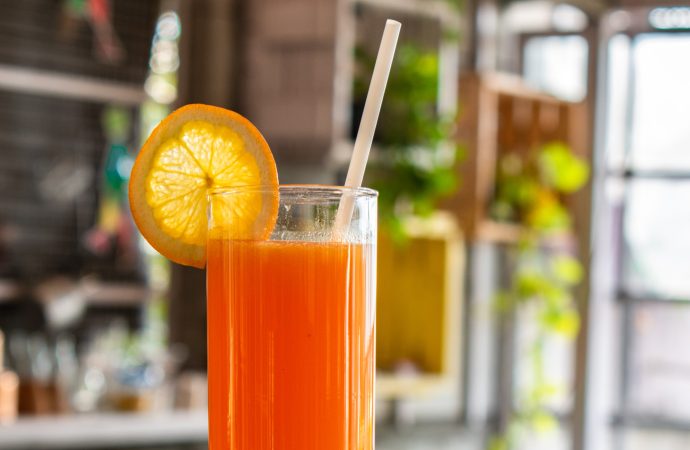Introduction: As the desire for healthier lifestyles and mindful choices grows, so does the popularity of mocktails. Mocktails, also known as non-alcoholic cocktails, offer a tempting alternative to traditional alcoholic beverages. But do these alcohol-free concoctions truly assist in reducing alcohol consumption? In this article, we delve into the world of mocktails and explore their
Introduction:
As the desire for healthier lifestyles and mindful choices grows, so does the popularity of mocktails. Mocktails, also known as non-alcoholic cocktails, offer a tempting alternative to traditional alcoholic beverages. But do these alcohol-free concoctions truly assist in reducing alcohol consumption? In this article, we delve into the world of mocktails and explore their potential impact on curbing alcohol intake.
Understanding Mocktails:
Mocktails have emerged as a creative and flavorful solution for individuals who want to enjoy the social aspects of drinking without the alcohol content. Crafted with a blend of juices, sodas, herbs, and other ingredients, mocktails offer a variety of flavors and presentations that mimic traditional cocktails. Their allure lies in providing a sophisticated and enjoyable experience without the risks associated with excessive alcohol consumption.
The Role of Mocktails in Promoting Moderation:
Advocates of mocktails argue that they can play a significant role in promoting moderation and reducing alcohol consumption. By providing an appealing alternative, mocktails offer individuals an opportunity to socialize and enjoy flavorful beverages without the need for alcohol. The availability of mocktails at social events and establishments can create an inclusive atmosphere, encouraging individuals to opt for healthier choices and exercise self-control when it comes to alcohol.
Breaking the Social Drinking Norm:
Alcohol consumption has long been ingrained in social gatherings, making it challenging for those looking to cut back or abstain. Mocktails help break the social drinking norm by providing a non-alcoholic option that allows individuals to participate fully in social events without feeling left out. The presence of mocktails can normalize responsible drinking habits and reduce the pressure to consume alcohol, thus supporting individuals in their quest for moderation.
A Pleasurable Alternative:
One of the key reasons behind the success of mocktails is their ability to provide a pleasurable alternative to alcoholic beverages. Mocktails are designed to tantalize the taste buds and engage the senses with their creative combinations of flavors, textures, and garnishes. By delivering a similar sensory experience to traditional cocktails, mocktails satisfy the desire for a well-crafted and enjoyable drink, without the alcohol-induced effects.
Supporting a Healthy Lifestyle:
Mocktails also align with the growing trend of prioritizing health and wellness. For individuals aiming to maintain a healthy lifestyle or adhere to specific dietary restrictions, mocktails offer a refreshing option that avoids the negative health consequences associated with excessive alcohol consumption. They provide an avenue for individuals to indulge in flavorful and visually appealing beverages while staying true to their wellness goals.
Navigating Challenges:
While mocktails can be a valuable tool in reducing alcohol consumption, challenges exist. The availability and variety of mocktails may vary depending on the location and establishment. In some cases, limited options or a lack of awareness may hinder individuals from choosing mocktails over alcoholic beverages. Additionally, personal preferences, cultural influences, and peer pressure can affect the success of using mocktails as a means of reducing alcohol intake.
The Importance of Mindful Consumption:
It is essential to remember that mocktails are not a magic solution to alcohol-related issues. They can be a helpful tool in promoting responsible drinking habits, but ultimately, it is up to individuals to exercise self-awareness and make mindful choices. Educating individuals about the potential risks of excessive alcohol consumption and the benefits of moderation remains crucial in fostering a healthier drinking culture.
Conclusion:
Mocktails offer a tantalizing and non-alcoholic alternative to traditional cocktails, and they can play a role in reducing alcohol consumption. By providing an enjoyable and visually appealing experience, mocktails enable individuals to socialize and celebrate without relying on alcohol. However, the effectiveness of mocktails in curbing alcohol intake depends on various factors, including personal preferences, social norms, and awareness. By embracing mocktails as part of a larger movement towards responsible drinking, individuals can make informed choices and enjoy the pleasures of a well-crafted drink without the potential risks associated with excessive alcohol consumption.

















Leave a Comment
Your email address will not be published. Required fields are marked with *